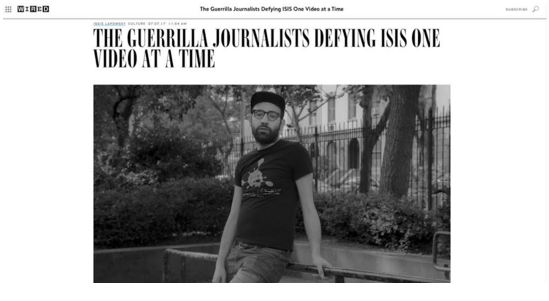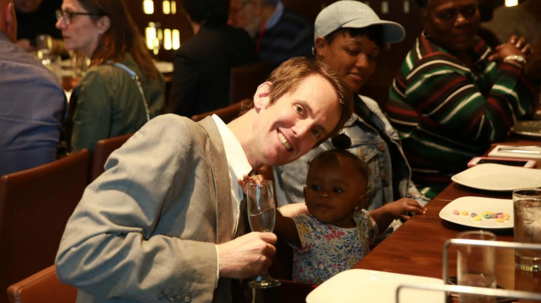There are certain themes that I return to again and again. One of them — which current and former students will quickly recognize — is “I have seen the future, and it is on the phone.” Mobile phone, that is.
The latest evidence comes from the BBC, as it prioritizes full motion video in its news app. Studies have shown that post engagement soars when you include video. This is a great time to be studying Broadcast Journalism, as we specialize in creating short-form, non-fiction video. You can’t find a more relevant course of study. Not so long ago, the BBC redesigned all of its websites in order to optimize them for mobile.
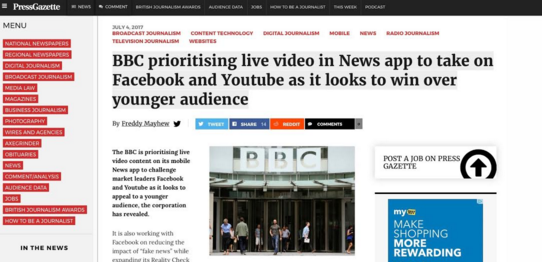
And speaking of the NYFA Broadcast Journalism course of study, a skill we put a great deal of emphasis on is the ability to conduct effective interviews. Getting the right “sound bite” takes one approach, while asking someone to speak directly “from the heart” is something else entirely. One of my favorite interviewers is Audie Cornish, who is an anchor/correspondent for NPR. (Formerly National Public Radio, but they changed their name to simply NPR so they didn’t seem wedded to a dinosaur technology. Personally, I love radio. But that’s another story…)
The Columbia Journalism Review is doing a series on interviewing, and the most recent edition features Audie Cornish. (I’ll have more to say about Columbia University a little later.)
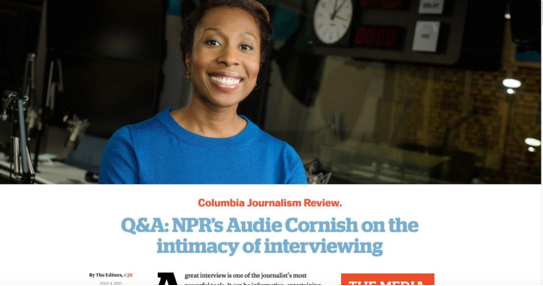
Being a journalist isn’t easy. But some of the people who practice our craft are literally risking their lives to deliver the news.
Wired posted an article about a journalist who is “defying ISIS one video at a time.” It is a tremendous read. Yes, it is an old-fashioned “article.” But don’t let that put you off. There are important themes discussed here. And while most of us never have to make the sacrifices that the journalist being profiled regularly endures, inevitably during the course of your career you will be asked to make difficult decisions. The question is: What will you do?
So perhaps you were watching the
National Geographic cable channel last night. The evening was called “
Earth Live,” and it was a real-time, worldwide exploration of the planet’s wildlife. Absolutely amazing! Equally amazing, there were about 50 music segments in this “live” program, all of which were skillfully integrated by NYFA’s own
Joel Spector. Joel is the audio wiz behind NYFA News, and he has been with the program since it started. We are incredibly lucky to have Joel, and he asked me to pass along a message to our current students: “Don’t over-modulate your audio! You can’t fix that in post-production!”
OK … He really didn’t ask me to say that. But if he did request me to say something, it would likely be somewhat similar. Our graduates can attest to that.
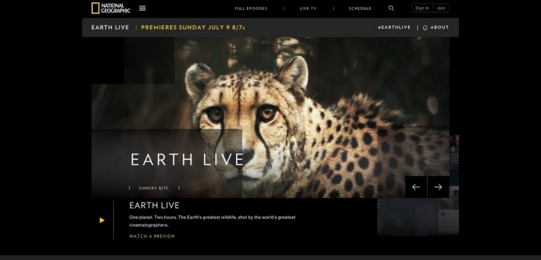
Arrivals and departures are an essential aspect of our craft, and this week I announce the departure of our personal journalism instructor, Thor Neureiter. Thor worked with the Fall 2016 1-year students along with the Spring 2017 1-year class, and he did an outstanding job. How “outstanding”? So outstanding that he has been hired by Columbia University to direct their Video Journalism program. It is a great opportunity for Thor, though we will miss him. (And I still think, if you want to become a multimedia journalist, NYFA is the place to go.)
That’s Thor below, with a fellow attendee at the (non-alcoholic) “toast” following the graduation of the Fall 2016 1-year Broadcast Journalism students. And its a good thing that glass is filled with seltzer, as some of the other attendees were a bit on the young side. (Look carefully…)
Good luck, Thor…
Meanwhile, NYFA Broadcast Journalism graduate Christian Good continues his “world video tour,” this time shooting in Reykjavik, Iceland. And once again, he faces the difficult task of figuring out how to say “Good Morning” to the locals. “Góðan daginn, or something,” he writes.


